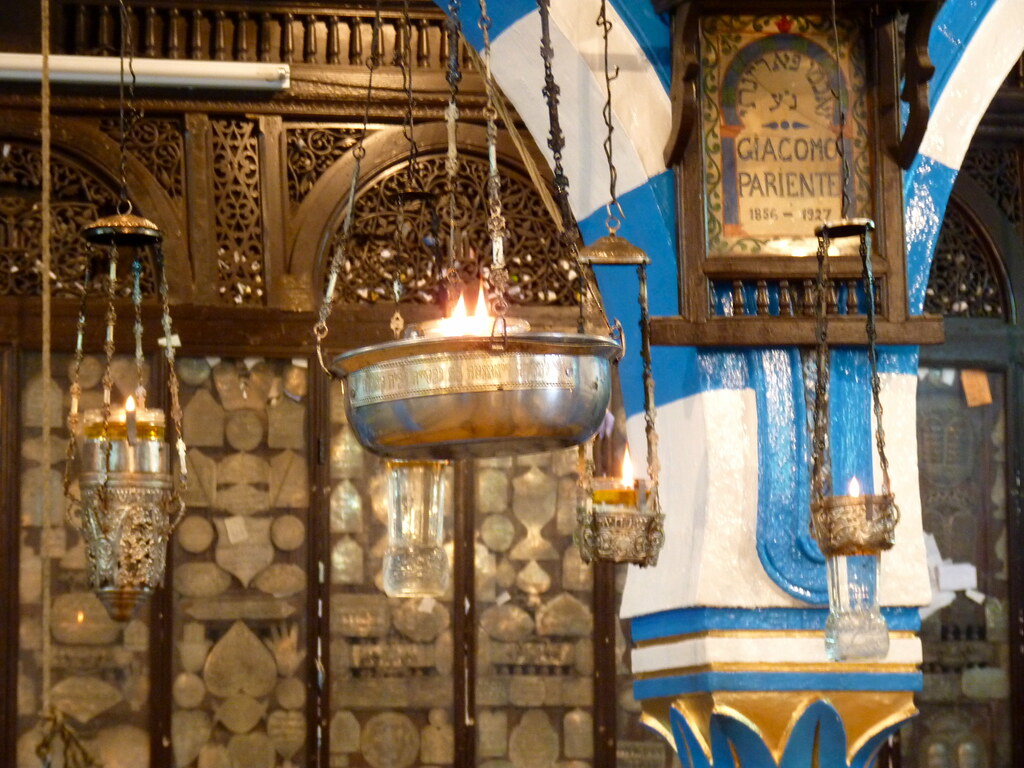 In a recent article, Lin Noueihed and Terek Amara discuss the racism and fear of harassment Tunisian Jews have experienced since the overthrow of Zine al-Abidine Ben Ali. The island of Djerba, home to one of North Africa’s largest Jewish communities, has historically been a point of pilgrimage, internationally drawing Jews to El Ghriba synagogue to commemorate the anniversary of the death of a second-century Jewish scholar. Over the past two years, Jews have been wary to make this pilgrimage because of political uncertainty in the country. Noueihed and Amara explain:
In a recent article, Lin Noueihed and Terek Amara discuss the racism and fear of harassment Tunisian Jews have experienced since the overthrow of Zine al-Abidine Ben Ali. The island of Djerba, home to one of North Africa’s largest Jewish communities, has historically been a point of pilgrimage, internationally drawing Jews to El Ghriba synagogue to commemorate the anniversary of the death of a second-century Jewish scholar. Over the past two years, Jews have been wary to make this pilgrimage because of political uncertainty in the country. Noueihed and Amara explain:
Sitting in his jewelry shop in Djerba’s covered souk, David Bitan said life for Tunisia’s Jews was changing, much as it has for all Tunisians since the revolt. Business had yet to recover and the instability that dogs Tunisia affected them too.
“We are not afraid of Salafis who talk too much. We’re afraid of those who say nothing, then do something,” said Bitan.
“Things have changed since the revolution. Before, people were afraid of the police. Now, we are under pressure. The police is weak, so racism is increasing. People are not afraid.”
The pilgrimage to Djerba, which attracted a peak number of 10,000 pilgrims in 2000, was cancelled last year because visitors were reluctant to wade into the charged political environment of the Arab Spring. Less than 100 made the journey.
Ahead of this year’s event around May 9 – the anniversary of the death of a second century Jewish scholar – Tunisia’s new Islamist-led government has been at pains to assure Jews that they are welcome.
But news of occasional unrest, such as a day of clashes between police and protesters on April 9, still spooks visitors thinking of making the pilgrimage, mainly from Germany and France.
Tunisia’s Jewish community once numbered 100,000 people. But fear, poverty and discrimination prompted several waves of emigration after the creation of Israel in 1948. Many left after the 1967 Arab-Israeli war. Most went to France or Israel.
Read the full article here.












